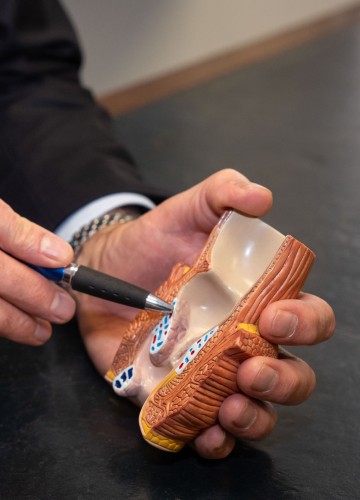Home / Diseases & Conditions / Haemorrhoids (Piles)
Haemorrhoids (Piles)
Haemorrhoids (also called piles) are soft, sponge-like cushions of tissue just inside the bottom (anus).

Everyone has Haemorrhoids - they are a normal part of the body and help ease bowel movements out and also keep the anus sealed.
The problem comes when the haemorrhoids get swollen. This can happen when there’s too much pressure, for example when you strain during a bowel movement, or during pregnancy and childbirth.
Haemorrhoids can lead to a variety of symptoms, ranging from mild discomfort or bleeding to significant pain or a lot of bleeding.
You should get a medical checkup if you have bleeding or pain from the anus.
Common Haemorrhoid Symptoms Include:
Haemorrhoid Treatment
It is most important to ensure your “haemorrhoid” symptoms are actually due to haemorrhoids and not something more serious. It may be possible to determine this with an examination in the clinic room, or further investigation, for example with a colonoscopy, may be recommended.
Intus colorectal surgeons are experienced in the management of haemorrhoids and can work with you to confirm the diagnosis and find the best treatment option.
Minor haemorrhoid
Minor haemorrhoid symptoms do not need treatment. A good fluid and fibre intake, along with careful hygiene can be enough to settle a lot of minor haemorrhoid symptoms.
Steroid ointments
Steroid ointments can help settle inflammation from haemorrhoids, but should not be used for more than 2-3 weeks.
Band ligation
Most haemorrhoids can be managed by simple treatment such as band ligation or injection therapy.
Surgery
Larger haemorrhoids may be best treated by surgery to remove them.





